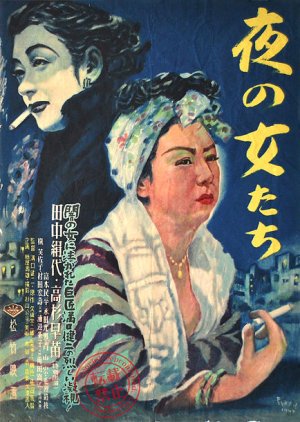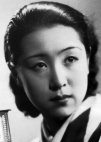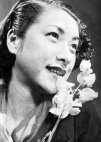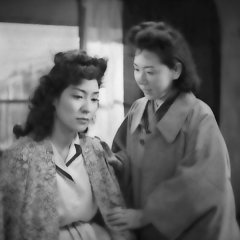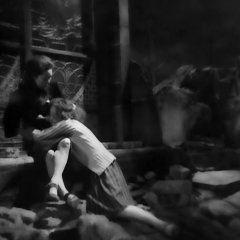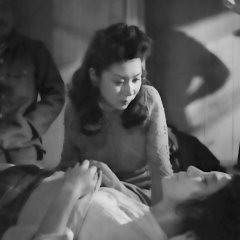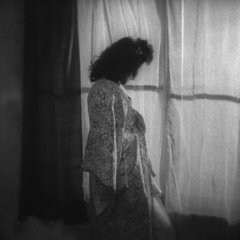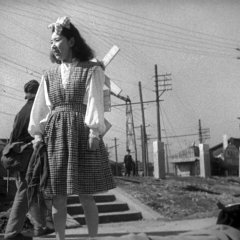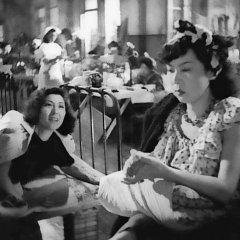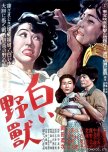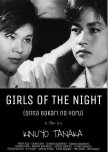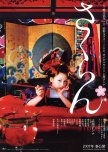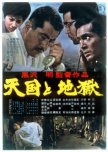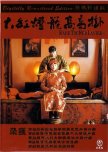- Nederlands
- magyar / magyar nyelv
- dansk
- Norsk
- Oorspronkelijke titel: 夜の女たち
- Ook gekend als: Yoru no Onnatachi ,
- Regisseur: Mizoguchi Kenji
- Scenarioschrijver: Yoda Yoshitaka
- Genres: Leven, Drama
Cast & Credits
- Tanaka Kinuyo Hoofdrol
- Takasugi Sanae Hoofdrol
- Mori Kikue[Second hand clothes shop proprietress]Bijrol
- Urabe Kumeko[Pimp's aunt]Bijrol
- Maki Fusako Bijrol
- Okada Kazuko[Woman from the apartment]Bijrol
beoordelingen

Deze recentie kan spoilers bevatten
"We know it's wrong, but preaching won't help"
Women of the Night was a brutal look at women without a support system who were left to fend for themselves on the streets during post WWII Japan. Sisters Fusako and Natsuko took different roads, but both ended up at the same destination—prostituting themselves to survive. Once again, Mizoguchi showed the devastating affects of war and poverty on women, this time taking on topics that were often taboo.Mizoguchi spared no one in this melodramatic look at the plight of women in the chaotic years after the war. A husband died, two children died, parents died, dying of malnutrition was a real fear, two sisters slept with the same man, opium was on the scene, STDs were dealt with, two characters were raped, gangs preyed on the weak, abortion was discussed, and pregnancy affected a main character. While life on the streets could be rough and deadly, Mizoguchi veered from informative into an area that felt exploitive.
Aside from desperation, the film was filled with anger, deep seething anger. Rage-filled Fusako hoped to infect as many men as she could. Natsuko only saw men as a way to make money, even willing to betray her sister to find a patron. The prostitution gangs fiercely guarded their territory, viciously attacking any woman who wandered their way or sought to turn straight. Men patrolled the streets looking for easy marks to rob and rape, further exasperating the predicament of young women on their own. Once "defiled" the girls often felt they had nowhere to turn but to prostitution.
Fusako had resisted turning to prostitution until the betrayal, which felt like an insincere reason for abandoning hope, and immediately diving into the world of street walking. By the end of the film, she made a 180 in the shadow of the Madonna in a bombed-out church that looked like a cemetery. It brought to mind the old Madonna (virgin) or whore definitions for women. She decided that she would work on behalf of all women for a world where their virtue could be protected. After being shown the dire straits women without family or fortune faced it felt insincere and an excuse for a hopeful ending. When the Purity Association had preached chastity at a women's clinic, the prostitutes jeered that they weren't turning tricks for fun and who would feed them if they quit? Would jobs suddenly be available and polite society accept them? Would men no longer take advantage of them? At one point there were 70,000 officially recognized prostitutes, not counting those who worked the streets. Mizoguchi repeatedly heaped humiliating trials and tribulations upon the female characters in this film and seemed to leave them with the false hope that simply walking away would provide them with food and shelter and a society that might come to accept them and be a safe place for women. After all the fury, degradation, and sorrow, the film's ending felt trite and unearned.
8/21/23
Vond je deze recentie nuttig?

